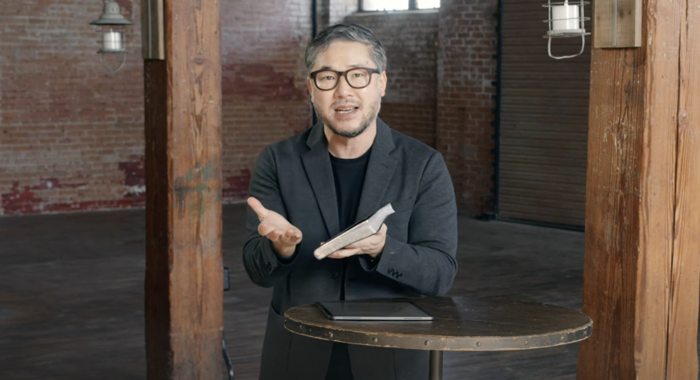Whatever we may think of “quiet quitting,” we can agree that workers everywhere are seeking some sanity. This also applies to the church, as 42 percent of pastors have seriously considered quitting ministry due to stress, loneliness and political polarization. The issues of mental health, the complexities of cultural issues, and the contentions of social discord are all too real and pressing.
Where do believers go to find rejuvenation? They should go fishing, well, at least theologically so.
One of the greatest catastrophes to befall God’s people happened during Ezekiel’s lifetime. After hundreds of years in the Promised Land, the Israelites confronted the anguish of exile. The covenant was an invitation to flourish in God’s bounty. But the people wouldn’t have it, and their rebellion brought judgment in the form of the Babylonians, whose destructive wake seemed irrevocable.
What could God’s people recover from the shattered remains?
In the midst of exile, the Lord grants Ezekiel a revelation of a new temple in Jerusalem. Chapter 47 begins with an angel guiding the prophet to see “water coming out from under the threshold of the temple” (47:1). This modest trickle becomes ankle-deep, then knee-deep, then waist-deep, and then a mighty river (47:5). The water rushes swiftly through the craggy-rocked desert and empties into the Dead Sea, where desolation was transformed, and the wounds of sin and exile are redeemed. Life miraculously flourishes with swarms of living creatures, schools of many kinds of fish, and trees of extraordinary variety and vitality, whose leaves are for healing and fruit are a never-failing source of food (47:6–12).
The vision bursts with allusions to Genesis and promises that from the chaos of exile God will bring a new creation. Ezekiel is swimming in the realities of God’s redemption, in which his grace touches every parched aspect of life.
Although in our present modest experiences of “exile” we are tempted to wallow in despair or to whack others in anger, we must instead go to the river of life. We may be wading in grace that seems just ankle-deep now, but be assured that God’s vision will prevail, if not through us, then through others. With humble and repentant confidence, may we be a people who flourish and cause others to flourish, who bear fruit and produce leaves for the healing of the deepest wounds of those around us.
Access Flourish 2022 Sessions ![Arrow]()
Walter Kim became the president of the National Association of Evangelicals in January 2020. He previously served as a pastor at Boston’s historic Park Street Church and at churches in Vancouver, Canada and Charlottesville, Virginia, as well as a campus chaplain at Yale University. He preaches, writes and engages in collaborative leadership to connect the Bible to the intellectual and cultural issues of the day. He regularly teaches in conferences and classrooms; addresses faith concerns with elected officials and public institutions; and provides theological and cultural commentary to leading news outlets. He serves on the boards of Christianity Today and World Relief and consults with a wide range of organizations. Kim received his Ph.D. from Harvard University in Near Eastern Languages and Civilizations, his M.Div. from Regent College in Vancouver, and his B.A. from Northwestern University.




 View All Articles
View All Articles 






























